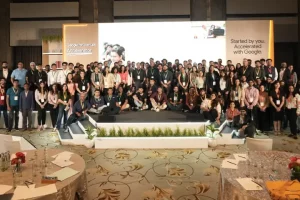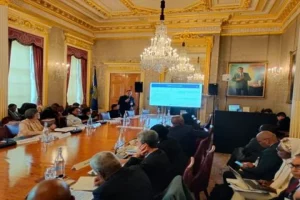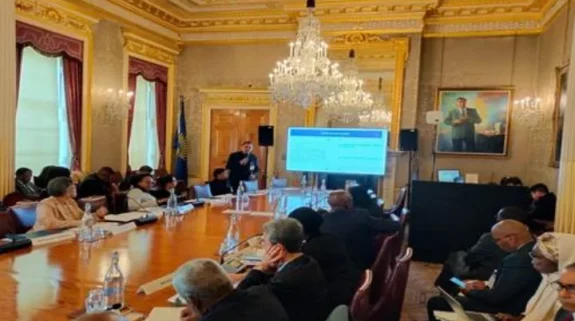China has repeatedly tested Indonesia's patience and resolve by venturing into its waters in pursuit of their expansionist agenda in the Natunas and the South China Sea. The months of September and October have seen a series of actions, both diplomatic and military, which highlight the resolve of the Indonesian government to deny China any gains in their waters. The most significant military development was in September, when CCP’s Coast Guard Cutter 5204 entered Indonesia’s Exclusive Economic Zone in the North Natuna Sea and refused to leave the waters for over two days. More significantly, on being interrogated by Indonesian Law Enforcement agencies, it replied that it was operating within the so-called ‘Nine Dash Line’.
This marks a significant shift in the Indonesia-China ties on maritime zones and claims. While the Communist China’s Maritime Militia and Coast Guard have routinely harassed legitimate economic activity across the South China Sea, they have not previously invoked this historic claim in the waters off Indonesia. This overt change in CCP’s posture is notable particularly because the region’s relatively rich fishing grounds are critical to Indonesia’s economy as a source of essential food for its vast populace.
Indonesia’s President Joko Widodo has noted the perils of allowing such activities and taken strong positive action to protect their interests. A credible naval force has been stationed in the North Natuna Sea comprising four frigates, which are assisted by craft from the BAKAMLA (Indonesia’s Maritime Security Agency) as well as the fisheries department. Besides, CN-235 maritime patrol aircraft and shore-based reconnaissance drones are used for regular surveillance. The Indonesian Air Force too routinely deploys F-16 fighters over these waters to signal Jakarta’s resolve in defending its maritime rights.
In another recent significant development; on the invitation of the US Secretary of Defence to his Indonesian counterpart, Prabowo Subianto, visited the Pentagon in mid-October. This marked a significant shift in official US Policy, because Subianto had been banned from entering the US for over 20 years for alleged involvement in human rights violations when serving in the Indonesian Army. The two sides have agreed to enhance US role in the modernization of the Indonesian Armed Forces as well as deepen their defence cooperation. This visit indicates a more meaningful shift in US-Indonesia ties as Subianto is widely tipped to be the frontrunner to replace Widodo as President in the next national election. Consequently, this initiative by the US Government could well signal the beginning of greater bilateral cooperation in the region, including defence cooperation.
<img class="wp-image-22543 size-full" src="https://indianarrative.com/wp-content/uploads/2020/11/indonesia-china.jpg" alt="Indonesia China " width="900" height="652" /> A file photo of Chinese President Xi Jinping (R) meeting with his Indonesian counterpart Joko Widodo in Osaka, Japan (Xinhua/Pang Xinglei/IANS)Indonesia is actively looking forward to replace its aging American F-5 aircraft in service to upgrading their militaries to fight a potential war against China. The Indonesian Air Force currently operates 23 Hawk light fighters as its mainstay force, along with about 33 F-16s. Some of these are old A/B airframes, nevertheless upgraded for extended service. The service also operates the Russian Su-27s and Su-30s, and also some 15 EMB-314 light attack aircraft. The Hawks are poised to be replaced by the newly-acquired T-50 light attack jets. However, the Russian jets are the only heavyweight twin-engine fighters in service, and the need for more such fighters is obvious. Indonesia was on the verge of finalizing a deal with Moscow for their new Su-35s, which was reportedly cancelled due to the American pressure. According to media reports, the United States is trying hard to sell its F-16s while the Indonesian Minister is keen on the F-35.
On a recent visit to Indonesia as part of a five-nation Asia tour, US Secretary of State Mike Pompeo said Washington would find new ways to cooperate with Indonesia in the South China Sea and respected Jakarta’s efforts to safeguard its own waters while rejecting China’s unlawful claims in the area on October 29 in Jakarta. Indonesia Foreign Minister Retno Marsudi reiterated Jakarta’s decisive action to protect its sovereignty in the waters near the Natuna Islands, which China also claims as its territory.
Indonesia wanted a stable and peaceful South China Sea where international law is respected, said Retno and added it has repeatedly turned away Chinese coast guard and fishing vessels that have entered the North Natuna Sea. Retno said Indonesia and the United States would enhance defence cooperation by boosting military procurement, training and exercises, intelligence sharing, and maritime security cooperation in the region.
Indonesia, as well as all of ASEAN, needs a strong US military presence in the region, amid escalating tension in the region now that China has become more assertive in its claim over a large swath of the South China Sea. Indonesia, however, never wants to form any security alliance despite regional rivalries and pledges neutrality during Pompeo visit.
Indonesia’s policy of neutrality has been the guiding principle for the archipelagic nation’s engagement with both US and China amid the growing competition between these two major powers. Maintaining an unwavering posture of non-involvement, Jakarta has sought to consolidate on its economic relationship with China while it tacitly welcomes US led efforts to enhance security in the South China Sea. Indonesia as the largest member of ASEAN, as well as a rising regional power in its own right, has shown the way for all countries across the region to handle the Dragon. The CCP’s reaction to Indonesia’s firm stance has been muted, as it has often been, when faced with a resilient opponent..




















